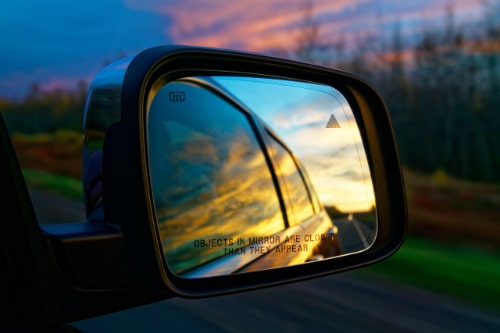
ALICE Barrier: Transportation
ALICENearly 1 in 4 households in Allen County earn an annual income above the Federal Poverty Level, but below the basic cost of living. These households do not earn enough to make ends meet, but because they are employed, they often earn too much to qualify for government and private assistance programs. This population group is known as ALICE: Asset Limited, Income Constrained, Employed. United Way of Allen County fights daily for these individuals by breaking down barriers that they face and by creating lasting change for them.
In the 2018 ALICE Report, transportation expenses account for sixteen percent of the Indiana family budget. For many ALICE households, sixteen percent of what they earn is not enough to cover the ongoing costs of a reliable vehicle. Although Indiana’s public transportation systems are state-funded, ALICE families do not receive government assistance for transportation. Many local nonprofits do offer assistance, yet even with this help, there is still a 53 percent gap in resources for individuals below the ALICE threshold to meet the basic cost of transportation.
United Way of Allen County offers funding to 31 local organizations and among these several of them recognize transportation as a barrier that ALICE families and individuals face.
Community Transportation Network (CTN), a funded partner agency, provides dependable and efficient transportation so no one is left behind. CTN recognizes that people sometimes slip into financial distress due to a variety of reasons, including a physical illness and/or job loss – which was the case for Marisa and her family. When Marisa was found unconscious on her floor at home, something was seriously wrong. Marisa received medical care, but as a result of a lack of oxygen to her brain she suffers many complications. Now, the width of Marisa’s wheelchair proves difficult for her husband to manipulate in and out of their family vehicle. His work schedule prevents him from being available to drive her to frequent midday healthcare appointments. In their efficient and friendly manner, CTN transports Marisa to therapy three times a week in conjunction with her Medicaid eligibility for coverage of medical expenses. CTN proved to be a dependable service that brought strong feelings of relief to Marisa’s entire family. However, Medicaid reimbursement is extremely low and CTN relies on continued support, like United Way donors, to sponsor trips such as the one Marisa needs three times a week.
Blue Jacket, a funded partner agency, provides employment training and opportunities for men and women facing a barrier who are striving to earn gainful employment – a barrier ALICE individuals face daily. In order to secure employment and training, one must have reliable transportation to and from the workplace. In an effort to eliminate this barrier, Blue Jacket started a shuttling program in 2017 for employee transportation to select employers who are willing to subsidize the costs involved. Enrollment in the Blue Jacket Career Academy rose as the availability of potential transportation access increased. Blue Jacket relies on expertise for improvements to this program from United Way’s funded agency partner, Community Transportation Network.
United Way of Allen County has many partners in the community that are working to break down the transportation barrier for ALICE families and individuals, but residents are still concerned, and we need to do more as a community. Nathan Miller, Community Wellness Coordinator at Purdue Cooperative Extension Service in Allen County, noted that very often cities are rebuilt to cater to cars because of their efficiency, however, this has come at a serious cost. From the unhealthiness of people, less connection to the community, and most importantly, how it makes getting around extremely difficult for individuals without vehicles. “In Allen County we are effectively unable to move around without a vehicle” Miller said. He is very involved in the Active Transportation Coalition of Fort Wayne which is a small group of advocates and organizations who are working to make it easier to get around the city without a car. “Walking and biking is almost magical. It increases physical activity and improves community health, it creates relational connections and improves neighborhood safety, it can be done by people of all ages, incomes and abilities, and it can accomplish all this while getting people to the places they need to go. Unfortunately, we’ve built a world where it’s uncomfortable, impractical, and often unsafe to get around on foot (or bike).” explains Miller.
ALICE individuals and families face this transportation barrier daily while many organizations and people in this community recognize the challenges and are fighting daily for improved access – but change is still needed.
MORE | Learn more about how to help individuals who are working hard but struggling to survive by reading the 2018 ALICE Report.
